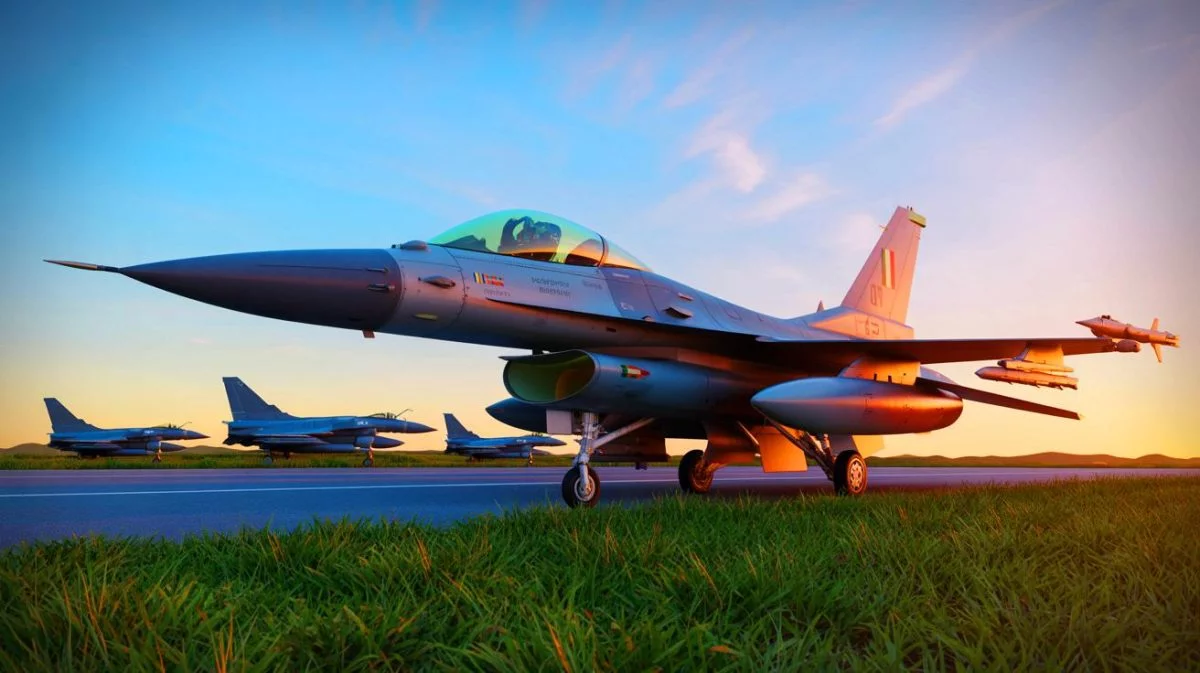| IN A NUTSHELL |
|
In a striking decision that has reverberated through defense circles, Portugal has opted to reject Lockheed Martin’s F-35 Lightning II fighter jets, citing concerns over the United States’ reliability as an ally. This move, announced by Portuguese Defense Minister Nuno Melo, underscores a significant shift in defense strategy for the NATO member. Historically dependent on American military hardware, Portugal’s decision signals a reevaluation of its defense ties with the U.S. amid shifting geopolitical landscapes. The announcement quashes years of planning and speculation that saw the F-35 as a potential successor to Portugal’s aging fleet of F-16 Fighting Falcons.
Portugal’s Dependence on the F-16: A History of Reliable Service
Portugal’s air force has long relied on the versatile F-16 Fighting Falcon, a fourth-generation fighter introduced in the 1990s through the Peace Atlantis programs. This fleet, comprising both new and second-hand aircraft, has undergone numerous upgrades to maintain operational readiness. The F-16s have been pivotal in supporting NATO missions and safeguarding Portuguese airspace. By 2019, discussions about transitioning to the advanced F-35 had emerged, largely due to its stealth capabilities and state-of-the-art sensor systems.
The notion of acquiring the F-35 gained further traction in April 2024 when General João Cartaxo Alves, then chief of the air force, indicated that Portugal was in a “transition” phase toward the F-35. He estimated a substantial investment of €5.5 billion, linking this vision to collaborative workshops with Lockheed Martin and the U.S. Air Force. Despite the enthusiasm, no formal procurement was finalized, and the Portuguese Ministry of Defense clarified that these discussions were more aspirational than concrete commitments.
Geopolitical Shifts and the Trump Factor
The reemergence of Donald Trump onto the U.S. political stage, with his second-term inauguration, has been a turning point for Portugal’s defense strategy. Historically critical of NATO and the financial obligations it imposes on the U.S., Trump’s rhetoric has reignited doubts among European allies regarding America’s steadfastness as a partner. This unpredictability poses tangible risks for Portugal, particularly if it were to depend on the F-35, which requires ongoing maintenance, software updates, and spare parts—all managed by U.S.-controlled systems.
Minister Nuno Melo emphasized that the “predictability of our allies” is now a crucial consideration. The fear is that an unpredictable U.S. administration might leverage its technological dominance over the F-35 to constrain Portugal’s strategic autonomy. Although rumors of a “kill switch” in the F-35 have been debunked, the reliance on American support infrastructure remains a critical vulnerability.
Exploring European Alternatives
In rejecting the F-35, Portugal is not abandoning its need to modernize its air force. The current F-16 fleet, consisting of approximately 30 operational aircraft, is nearing the end of its service life, with replacements needed by the early 2030s. Instead of strengthening American ties, Portugal is now considering European alternatives like the French Rafale, the Eurofighter Typhoon, or the Saab Gripen. Although these options lack the F-35’s fifth-generation stealth, they offer a chance to bolster European defense industries and reduce reliance on an uncertain partner.
This decision aligns with broader EU calls for defense autonomy, reflected in the European Commission’s push for “large-scale pan-European flagship projects” to counter threats, notably from Russia. Portugal’s stance could influence other nations, as it reflects a pragmatic approach in an era of geopolitical flux. Betting solely on a single ally’s consistency is no longer seen as viable.
The Broader Implications for NATO and Beyond
Portugal’s decision carries implications that extend beyond its borders. As a committed NATO member, its hesitation toward the F-35 could have ripple effects throughout the alliance, where the aircraft has been touted as a unifying standard. Countries like Norway, the Netherlands, and Germany have embraced the F-35, making Portugal’s pivot a noteworthy exception.
Minister Melo’s stance reflects a broader pragmatic calculus: in a world marked by uncertainty, relying on a single ally may no longer be sufficient. With snap elections on the horizon following a government collapse in March 2025, Portugal’s final decision remains fluid. However, the message is clear: Portugal will not bind itself to the F-35 or the uncertainties it now represents.
As Portugal navigates these complex defense decisions, the question arises: how will this strategic pivot impact its long-term security objectives and its role within NATO’s future landscape?
Did you like it? 4.6/5 (26)









Wow, Portugal really turned the tables! Do you think other countries will follow suit? 🤔
Interesting move by Portugal! Wonder if this is more about the F-35 or US politics? 🤷♂️
Good for Portugal! Independence can be powerful. 💪
Is it really smart to trust European defense more than the US, given history? Curious to see how this plays out.
Feels like a big gamble to me. Is the Eurofighter really up to the task?
Not surprised. The F-35 has been riddled with issues. Maybe it’s for the best. 😅
With Trump back, I can see why Portugal is worried. But will this affect NATO unity?
The Eurofighter and Rafale are great jets, but can they match the F-35’s technology?
What about the cost? Are European jets really cheaper in the long run?